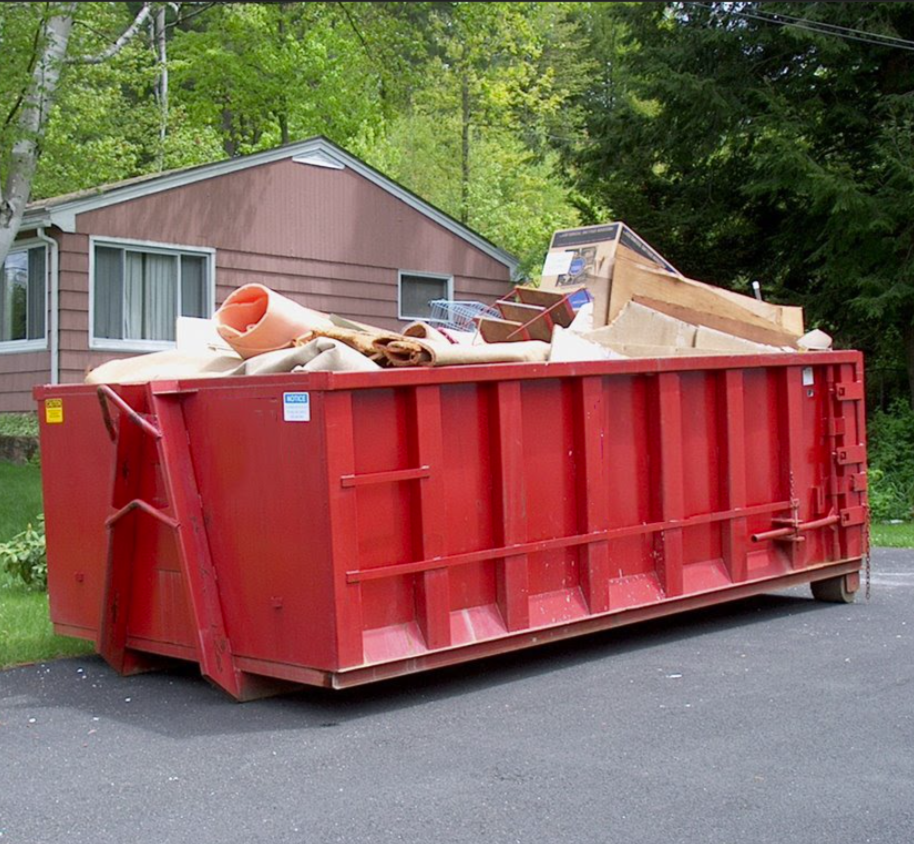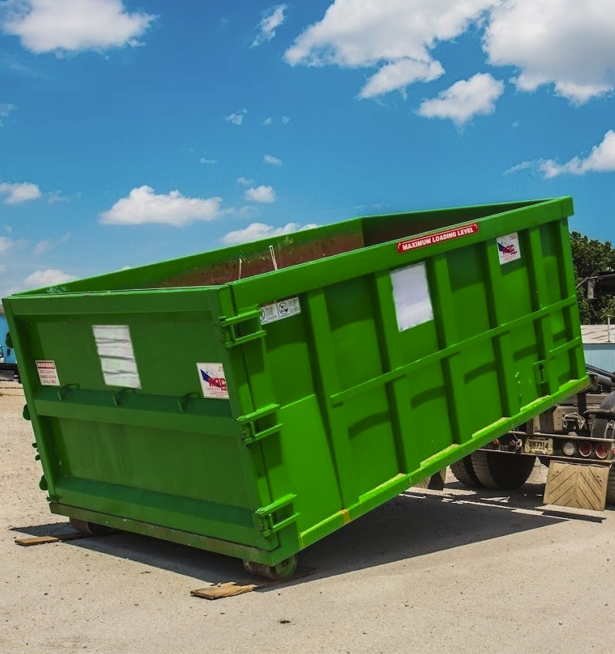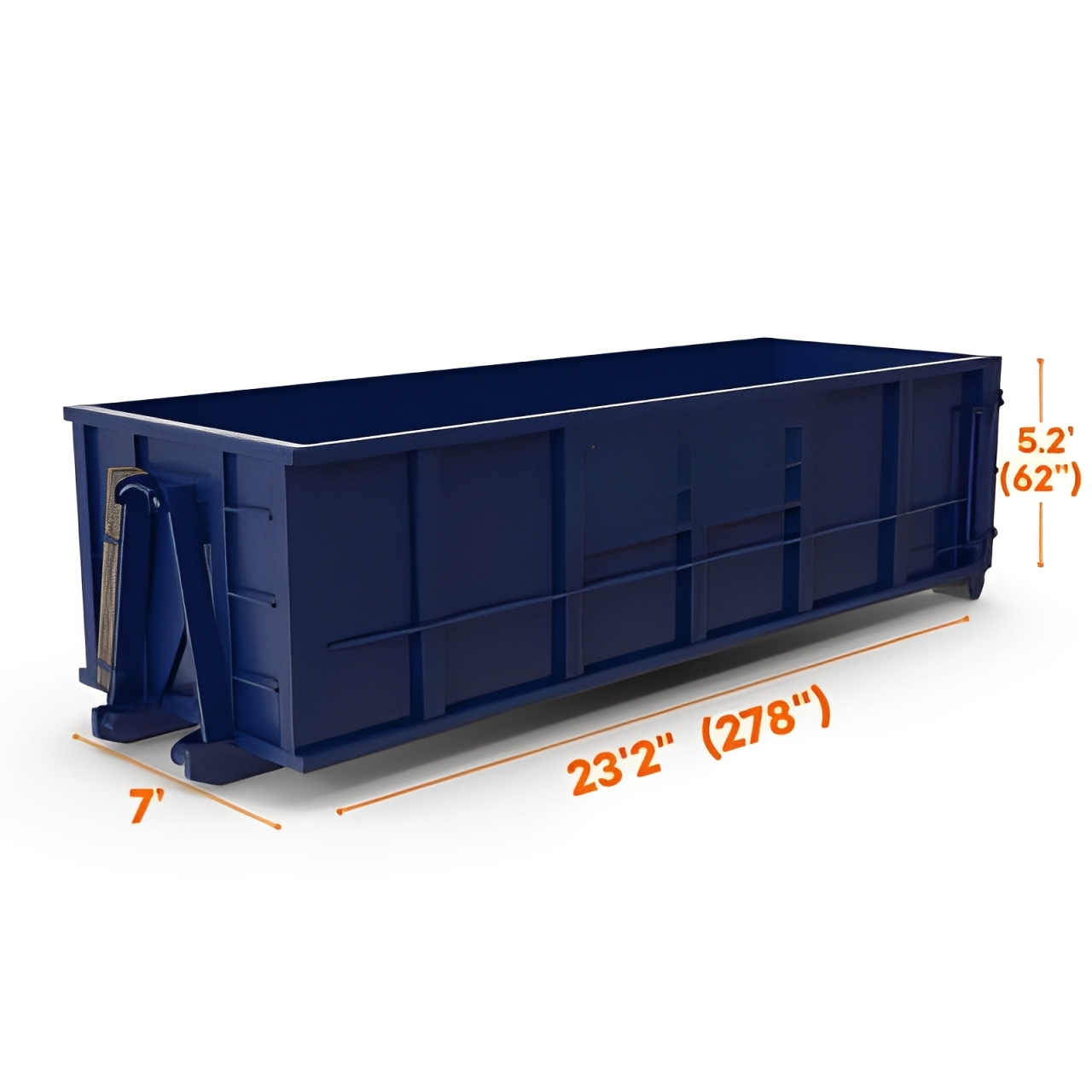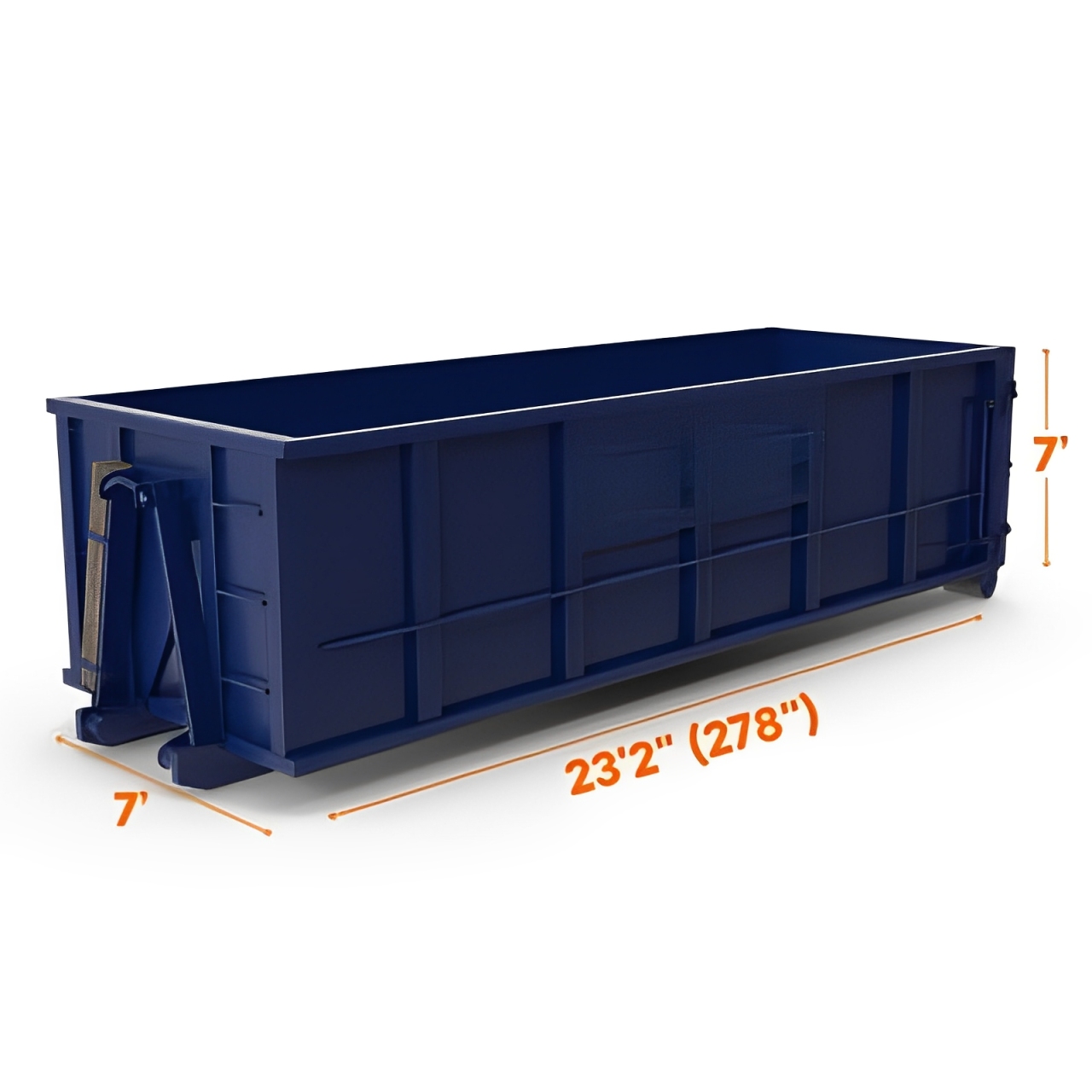Roll Off Dumpsters offer numerous eco-friendly advantages, making them a conscientious choice for waste management. First, these dumpsters support efficient waste separation and disposal, encouraging recycling and reducing landfill contributions. By segregating waste directly at the source, Roll Off Dumpsters contribute significantly to minimizing contamination, ensuring that recyclable materials are handled appropriately. Furthermore, their use promotes compliance with local environmental regulations, ensuring that waste management practices align with the highest sustainability standards.
Another key benefit is the reduction of carbon footprints associated with waste transport. Roll Off Dumpsters minimize the need for multiple collection trips, lowering greenhouse gas emissions that result from frequent waste collection. This streamlined approach not only optimizes route efficiency but also reduces transport costs, making it both an economical and environmentally responsible solution.
Additionally, these dumpsters are designed for versatility and optimal use of space, enabling effective management of large volumes of waste generated from projects such as construction, renovations, and community events. This benefit is particularly impactful in urban areas where managing waste efficiently is crucial to reducing environmental impact.
Roll Off Dumpsters also facilitate community cleanliness by controlling waste accumulation and keeping public spaces tidy. Their robust construction prevents leaks and debris from spilling, reducing the risk of environmental pollution. By partnering with responsible waste management companies, users can rest assured that their waste is managed with an eco-focused approach supported by adherence to sustainable practices.
Overall, Roll Off Dumpsters play a critical role in enhancing eco-friendly practices in waste management, demonstrating a clear commitment to safeguarding the environment. Whether used in residential, commercial, or industrial settings, they offer a valuable service by minimizing environmental repercussions and ensuring that waste is handled in a manner that prioritizes ecological well-being.

Roll Off Dumpster Rentals in Boca Raton, Florida
Call today for a free quote (772) 280-9298
Roll Off Dumpster
Fast, Easy, & 100% Free To Get Started
Decades of Excellence
With over 20 years of experience serving Boca Raton, our Roll Off Dumpster company is deeply rooted in the community, delivering quality you can trust. We are committed to customer satisfaction and consistently strive to exceed expectations with reliable services.
Top Quality Guaranteed
Our Roll Off Dumpster company takes pride in delivering top-tier service, providing clean and reliable solutions for all your disposal needs. We uphold a high standard of excellence, always prioritizing your satisfaction.
Fast and Reliable Delivery
Experience prompt and efficient delivery with our Roll Off Dumpster services, ensuring your projects progress without interruption. Our dedicated team offers timely solutions perfectly aligned with your schedule and needs.
Dependable Roll Off Dumpster Services in Boca Raton
Call for a Free Quote Today
(772) 280-9298
Experience exceptional service with our Roll Off Dumpster company in Boca Raton, Florida. Dependable and reliable, we deliver quality that stands out. As a locally owned business, we grasp the community's unique needs and prioritize offering consistent, top-tier service. Whether you're managing a construction site, hosting a party, organizing a festival, or planning a wedding, we provide tailored solutions to meet your requirements. Our coverage extends beyond Boca Raton into surrounding areas, ensuring wide-reaching service. Opt for us and benefit from our trustworthy reputation, community-focused approach, and steadfast commitment to excellence.


20 Yard Roll-Off Dumpster
Fits approximately 70 normally-filled 30-gallon trash bags.
Ideal for:
• Large home cleanouts or decluttering projects
• Roof replacements for medium-sized homes
• Renovations of multiple rooms (e.g., kitchen and bathroom)
• Medium-sized landscaping or yard renovation projects
• Demolition of a small to medium-sized structure (e.g., shed, small house)

30 Yard Roll-Off Dumpster
Fits approximately 110 normally-filled 30-gallon trash bags.
Ideal for:
• Whole-home cleanouts or major downsizing projects
• Large-scale renovation projects (e.g., entire house remodel)
• Commercial construction projects (e.g., small retail or office building)
• Large landscaping projects for commercial properties
• Demolition of medium-sized structures or multi-story buildings

40 Yard Roll-Off Dumpster
Fits approximately 150 normally-filled 30-gallon trash bags.
Ideal for:
• Major home renovation or remodeling projects
• Large-scale commercial cleanouts
• Extensive landscaping or yard renovation projects
• Large construction projects (e.g., new home construction)
• Demolition of large structures or significant portions of a building
We Proudly Serve
Standard Portable Toilets
Freedom Waste offers dependable Standard Portable Toilets service throughout Florida.
High Rise Portable Toilets
High Rise Portable Toilets in Boca Raton provide solutions for challenging construction projects.
Restroom Trailers
Freedom Waste supplies elegant Restroom Trailers in Boca Raton, ideal for sophisticated events.
Roll off Dumpsters
Our Roll Off Dumpsters in Boca Raton deliver clean, efficient waste solutions for any project.
Septic Tank Cleaning
Efficient Septic Tank Cleaning services by Freedom Waste ensure optimal system performance in Florida.
Grease Trap Cleaning
Boca Raton's reliable Grease Trap Cleaning services keep your facilities functioning smoothly.
Fencing & Barricades
Freedom Waste specializes in sturdy Fencing & Barricades services across Florida.
Residential Storage
Secure Residential Storage solutions available at Boca Raton, Florida, by Freedom Waste.
Boca Raton Waste Solution Experts
Our Roll Off Dumpster services in Boca Raton prioritize convenience at every step. Securing a quote and scheduling delivery is both straightforward and efficient, saving you valuable time and effort. We offer easy online quote requests and quick responses, ensuring your dumpster needs are met with minimal hassle. Our team specializes in coordinating prompt deliveries, guaranteeing your dumpster arrives exactly when needed, even under the tightest deadlines. We uphold transparency by providing accurate quotes without hidden fees. Our intuitive digital interface simplifies managing bookings or inquiries, making the process stress-free. Whether you're overseeing a large construction project or organizing a community event, our reliable and professional services cover all your needs. Trust us for a seamless experience from start to finish, expertly handling all your Roll Off Dumpster requirements.

Discover the local benefits of our Roll Off Dumpster services in Boca Raton, a city renowned for attractions like Mizner Park and lively events such as the Boca Raton Bowl. We offer reliable and convenient services right in the heart of your community, enhancing any event or project you plan. The beauty of Boca Raton, with its scenic views and bustling community activities, demands top-notch service that complements the local charm. Our Roll Off Dumpsters are the top choice for both residential and commercial needs, thanks to our commitment to providing clean and dependable products. Whether you’re organizing a festival, a construction project, or a private celebration, our dumpsters are designed to integrate seamlessly with your plans, ensuring a hassle-free experience. Trust in our dedicated team to bring you the best in local waste management solutions. We take pride in making your work easier and more efficient while contributing to the cleanliness and upkeep of our picturesque city. Partner with us and elevate your event with reliable waste solutions that reflect Boca Raton’s elegant and innovative spirit.
Boca Raton's first choice for Roll Off Dumpsters is here to meet your needs with unmatched professionalism and service excellence. Our company stands out for its dedication to the community and unwavering commitment to quality, ensuring satisfaction in every project.
By choosing us, you select a service that understands and respects the local ambiance, providing efficient, clean, and reliable waste disposal solutions. Our top-tier offerings result from years of experience combined with a keen focus on customer satisfaction.
Your projects, events, and needs are diligently supported by our expert team, offering flexible and fast delivery solutions precisely when and where they're required. As your go-to provider in Boca Raton, we take pride in being a trusted partner that matches the high standards expected by our valued clients in the area.
Efficient and prompt are the cornerstones of our Roll Off Dumpster services in Boca Raton. We are dedicated to providing fast and reliable waste solutions to ensure your projects remain on track. Our team's commitment to timely service is a testament to our professional ethos, guaranteeing you receive your dumpsters exactly when needed.
With our efficient logistic frameworks, your delivery experience is smooth and devoid of delays. We cater to both small-scale and extensive operations, making sure that our dumpsters are always available to support your needs. Trust in our ability to deliver prompt responses and solutions, helping you achieve seamless operations without interruptions.
Choose us for an expedited service that prioritizes your project timelines, offering the precise support and mobilization required to maintain your workflow. Experience the ease and reliability of our fast delivery, making us Boca Raton's go-to choice for Roll Off Dumpster rentals.
Learn More About Our Boca Raton Roll Off Dumpster
Renting a Roll Off Dumpster in Boca Raton is a straightforward process designed to make your experience seamless and efficient. To initiate the process, simply visit our website where you'll find forms located at both the top and bottom of the page. These forms are quick and easy to fill out, requiring only minimal information to get started. You will need to provide your first and last name, phone number, and email address to proceed. This ensures we have the essential details needed to contact you promptly.
Additionally, throughout our website, you'll notice strategically placed 'Get A Quote' buttons. These are designed to make it even more convenient for you to request a quote with just one click. Whether you are navigating the main landing page or perusing different service sections, you can easily access these buttons, making your inquiry just a step away no matter where you are on the site.
Once we receive your completed form or quote request, a member of our dedicated team will reach out to you to discuss your specific dumpster requirements, ensuring personalized service tailored to your project needs. Our team will outline all available options, provide transparent pricing details, and guide you in choosing the dumpster size that best suits your needs.
Moreover, you can expect swift responses and friendly customer support every step of the way. Should you have any questions or require assistance during the rental process, our knowledgeable staff is on hand to help clarify any concerns and ensure your booking is processed smoothly.
Ultimately, renting a Roll Off Dumpster in Boca Raton is hassle-free, thanks to our user-friendly systems and customer-centered approach. Experience the convenience of easy online requests and personalized service to meet your waste management needs quickly and efficiently.
The typical delivery timeframe for a Roll Off Dumpster varies based on availability and your specific project requirements, but we strive to provide prompt and reliable service to meet your needs. Once an order is placed, our team works diligently to coordinate the logistics and ensure your dumpster arrives right on schedule. Depending on the time of booking and location specifics, delivery can often be arranged within 24 to 48 hours.
We understand that project timelines can be tight, which is why we prioritize flexibility and efficiency in our delivery processes. Whether you require immediate service or have a set date in mind, our team collaborates closely with you to accommodate your schedule without compromising on service quality. Our well-established systems ensure that our fleet of dumpsters is on standby, ready to deploy at a moment's notice.
Communication is key, and we notify you of any important updates regarding your delivery, ensuring you are well-informed and prepared to receive your unit. This transparency helps in minimizing any disruptions to your project timeline, giving you peace of mind and allowing you to focus on other important tasks.
Should there be any delays due to factors outside of our control, such as weather conditions or site accessibility issues, our team promptly communicates with you and works to resolve any challenges swiftly. Our goal is to reduce any potential downtime by realigning our delivery schedule to meet your project requirements efficiently.
With a commitment to timely and precise delivery, we have built a reputation for reliability in the Boca Raton area, ensuring your Roll Off Dumpster is on-site when you need it most. Trust us to provide a service that complements your project needs with minimal fuss.
Yes, we are fully equipped to handle a wide array of events and construction projects, regardless of their size or type. Our diverse offerings encompass luxury restroom trailers, porta potties, Roll Off Dumpsters, fencing, barricades, holding tanks, ADA units, portable sinks, and hand sanitizer stations—all crafted to meet varied demands. We serve events such as festivals, sporting events, weddings, corporate gatherings, family reunions, and other special occasions.
Our team recognizes the distinct needs of each event and construction project, enabling us to tailor our services precisely to your situation. Whether you're organizing an outdoor festival requiring numerous sanitation stations or managing a construction site that demands effective waste management, we deliver efficient and comprehensive solutions.
We take pride in providing high-quality equipment that adheres to safety and convenience standards, ensuring smooth operations for your event or project. With a focus on reliability and customer satisfaction, our services are executed with precision and meticulous attention to detail. Our professional staff collaborates with you to evaluate your needs, guaranteeing that all equipment and solutions align with your requirements.
By selecting our services, you enjoy peace of mind, knowing we have the expertise and infrastructure to expertly manage events and projects of any scale. We are committed to supporting your success with comprehensive services that simplify logistics, elevating the quality and efficiency of every event or project you undertake.

